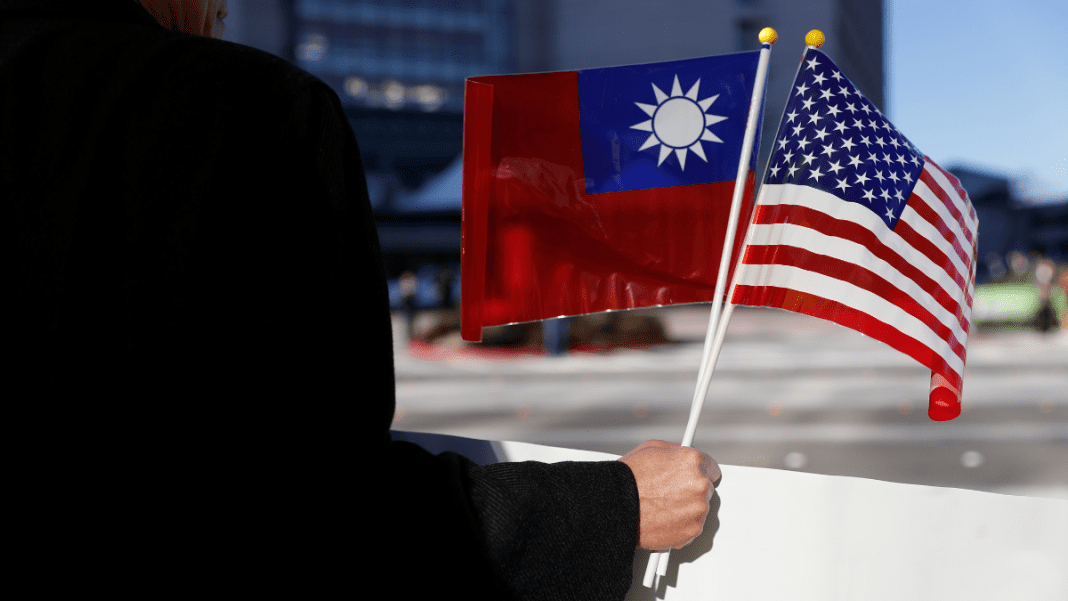The United States has approved a major arms deal with Taiwan, potentially worth $330 million. This decision, announced by the Pentagon, marks the first such approval under the current U.S. administration. The sale focuses on essential fighter jet parts that are expected to maintain and enhance Taiwan defense capabilities.
US Approves $330M Fighter Jet Parts to Strengthen Taiwan Defense
Officials said the arms sale includes components for F-16 fighter jets and C-130 transport aircraft. These aircraft form the backbone of Taiwan’s air force, and the availability of spare parts is crucial to keeping them operational.
By maintaining the readiness of these jets, the deal ensures that Taiwan’s military remains capable of handling both current and future threats. By keeping Taiwan’s aircraft fleet operational, the U.S. hopes to strengthen Taiwan defense in the face of ongoing regional tensions.
Japan sends bold warning to China — Self-Defense Forces hold rare naval drills near Taiwan
The Pentagon emphasized that the proposed sale will support Taiwan in maintaining “operational readiness” and enhancing its defensive resilience. Specifically, this includes bolstering air defenses, ensuring that fighter jets are ready for immediate deployment, and improving the island’s capacity to respond to potential incursions. Furthermore, experts say that these components are essential for keeping Taiwan’s fleet mission-ready and capable of addressing a variety of security challenges.
Taiwan Defense Strengthened as Ministry Expresses Gratitude
Taiwan’s defense ministry issued a statement confirming that the arms sale is expected to take effect within one month. Officials said the provision of parts will help sustain fighter jet readiness, improve air defense systems, and boost the island’s ability to respond to regular threats, further reinforcing Taiwan defense.
“These steps will help maintain the operational strength of Taiwan’s air force and reinforce defensive capabilities,” the ministry said. It also expressed gratitude to the United States for supporting Taiwan defense, highlighting the importance of international cooperation in maintaining security and stability.
China blacklists U.S. naval shipbuilder Huntington Ingalls in fury over Taiwan weapons sales
Taiwan faces frequent “gray-zone” activities from its neighbor, where military aircraft and ships enter areas around the island without engaging in direct combat. These actions often aim to pressure Taiwan while avoiding a full-scale conflict. Analysts say the new parts for fighter jets will strengthen Taiwan defense and enable the island to monitor and respond to these activities effectively.
By keeping its air force operationally ready, Taiwan ensures it can respond quickly to any sudden developments in the region. The added equipment and spare parts will allow pilots to conduct training exercises regularly, maintain high levels of readiness, and respond quickly to threats. All of these measures play a vital role in sustaining Taiwan defense against a range of potential challenges.
Strategic Context and Regional Tensions
The United States maintains formal diplomatic relations with Beijing but also has unofficial ties with Taiwan. Under U.S. law, Washington is required to provide Taiwan with the means to defend itself. In this context, the arms deal highlights the U.S.’s continued commitment to Taiwan defense, particularly during a time when tensions in the Taiwan Strait remain high.
China considers Taiwan a part of its territory and has not ruled out the use of force to assert control. However, Taiwan, governed democratically, strongly rejects these claims, insisting that only its people can decide the island’s future. In response to these challenges, Taiwan continues to modernize its defense capabilities with support from allies.
The arms sale comes shortly after high-level talks between U.S. and Chinese leaders in Asia, which focused primarily on trade discussions. Therefore, the timing of the deal demonstrates that the United States remains committed to Taiwan defense, even as it balances complex relations with China.
Supplying fighter jet parts will keep Taiwan’s air fleet operational, ready, and more capable of defending the island. Moreover, with ongoing “gray-zone” activities and frequent military patrols near its waters and airspace, Taiwan defense relies heavily on such support to maintain regional stability.
Analysts say that continuous arms support and equipment maintenance are critical for Taiwan to deter potential threats. By maintaining aircraft readiness, the island can respond quickly to incursions and signal to regional actors that Taiwan can defend itself effectively. Consequently, the U.S. sale of fighter jet parts, while technical, has significant implications for Taiwan defense.
